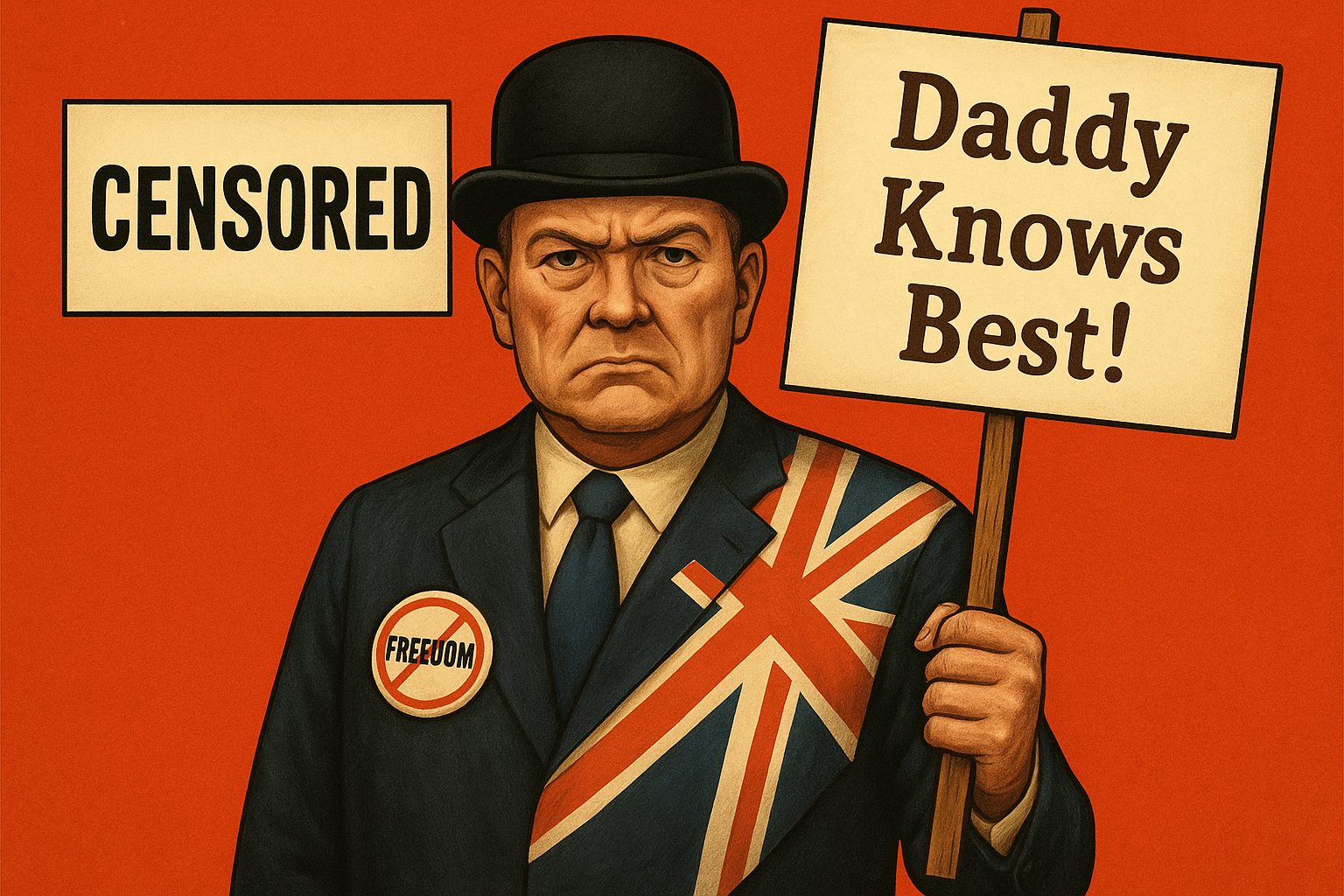 The UK government has taken yet another swing at the adult entertainment industry, this time banning pornographic content that depicts acts of strangulation or suffocation. The new rules, embedded in amendments to the Crime and Policing Bill and reinforced under the Online Safety Act, criminalize not only the sharing of such content but even private possession of it. That means adult producers, distributors, and even viewers are now at risk of prosecution for creating or accessing content that is, by any reasonable definition, consensual fantasy between adults.
The UK government has taken yet another swing at the adult entertainment industry, this time banning pornographic content that depicts acts of strangulation or suffocation. The new rules, embedded in amendments to the Crime and Policing Bill and reinforced under the Online Safety Act, criminalize not only the sharing of such content but even private possession of it. That means adult producers, distributors, and even viewers are now at risk of prosecution for creating or accessing content that is, by any reasonable definition, consensual fantasy between adults.
Let’s be absolutely clear: this is not about protecting women. This is about control, moral panic, and the English government’s perennial need to posture as a guardian of public decency while ignoring nuance, evidence, and the lived realities of adult performers and consumers.
A Law Built on Politics, Not Science
The entire premise of this legislation hinges on the idea that viewing “violent” pornography causes viewers (especially young men) to replicate what they see. But as inconvenient as this may be to the British politicians, correlation is not causation. Yes, some studies do show a relationship between watching porn that includes choking and a higher likelihood of attempting that act in the bedroom. But many of these studies are self-reported, correlational, and based on limited sample groups. Which makes them next to worthless.
Worse, the government’s policy rests heavily on a report it commissioned from Baroness Gabby Bertin’s “Independent Porn Review.” Let’s be real: when governments commission “independent” reviews on politically charged issues, the findings are often baked in from the start. Politicians don’t fund reports to be challenged, they fund them to validate legislation they already want to pass.
Even the strongest empirical research shows only weak or mixed associations between violent pornography and actual harmful behavior. A 2022 meta-analysis found little to no effect when controlling for other variables such as personality traits, peer influence, or education. Some longitudinal data even suggests that as porn access has increased, sexual violence has decreased in some regions. The government conveniently ignores this data.
A Dangerous Overreach Into Private Sexual Freedom
This legislation treats all portrayals of choking as inherently violent and abusive, even when clearly staged and consensual. It makes no distinction between a violent rape scenario and a consensual BDSM scene. In doing so, it erases adult performers’ agency and undermines the kink communities who produce such content responsibly and ethically.
The UK reversed a similar ban in 2019 when regulators recognized that depictions of consensual BDSM should not be criminalized. That nuance is gone. Now, the UK government is effectively saying that even consensual depictions of these acts are beyond the pale. That’s not protection, that’s censorship.
Unenforceable, Overbroad, and Technologically Reckless
Who will police the internet to determine what qualifies as “illegal” choking content? AI filters? Overzealous content moderators? The law will almost certainly lead to overblocking, false positives, and very likely even surveillance of personal data.
Even more troubling: individuals can now be prosecuted just for possessing this kind of content. This amounts to criminalizing fantasy. It opens the door to prosecuting people based on what arouses them, not based on harm or intent. And you know it won’t stop here, because for censors it’s never, even enough.
Censorship Disguised as Protection
The government says this is about protecting women and girls. But banning depictions of consensual kink doesn’t solve the deeper issues, like misogyny, lack of consent education, and social inequality. What actually helps? Comprehensive sex education. Open discussions about consent. Teaching risk awareness, not punishing fantasy.
I’ve been in this industry long enough to know that porn is all-too-often treated as the scapegoat for society’s discomfort with sex. But if we’re serious about addressing harm, we need real strategies, not political grandstanding, legislative overreach and cultural suppression.
Where Do We Go From Here?
The adult industry must not stay silent about this blatant political shaming campaign. This law opens the door to future bans on even more sexual expression: simulated non-consent, degradation kink, and other fetishes could and almost certainly will be next. Their lies need to be challenged across the board, not just legally but also in the media, and through coordinated advocacy.
Creators and performers should not be punished for depicting acts that are legal, consensual, and crafted with safety in mind. Viewers should not be criminalized for their private preferences. And governments should not be allowed to decide what fantasies are “acceptable.”
This isn’t about safety. It’s about censorship, control, and a dangerous precedent. The shame here is all on England for passing horrendous legislation that intrudes on the rights of its citizens and treats adults like children. It deserves to be called out, and it deserves to be rolled back.












